Have you ever wondered how some people seem to stay ahead of the curve while others play catch-up effortlessly? Enter the world of being proactive! It’s not just a buzzword; it’s a superpower that propels you from reactive to proactive, turning chaos into clarity and hurdles into stepping stones. Join us as we answer the question “what does proactive mean?” and how you can harness this mindset to conquer the everyday challenges of work and life.
Understanding What It Means to Be Proactive
Being proactive means taking initiative and anticipating future events, needs, or potential challenges before they arise. It’s about being prepared and taking control of situations rather than just reacting to them as they happen. A proactive person looks ahead, plans, and acts to create favorable outcomes or mitigate negative ones.
Proactive thinking and behavior involve several key characteristics:
- Foresight: Proactive individuals often have a clear vision of what they want to achieve and can foresee potential obstacles and opportunities. They think ahead and consider the long-term implications of their actions.
- Initiative: Rather than waiting for things to happen or for instructions to be given, proactive people take the initiative to make things happen. They don’t wait for permission or for problems to become urgent before addressing them.
- Responsibility: Proactive individuals take responsibility for their actions and outcomes. They don’t blame others or external circumstances for their situation. Instead, they focus on what they can do to influence the outcome positively.
- Problem-solving: Proactive people are natural problem solvers. They look for solutions rather than dwelling on problems. They seek out and implement ways to overcome obstacles or prevent them from occurring.
- Planning: A key aspect of being proactive is planning. Proactive individuals set goals, create plans to achieve those goals, and regularly review and adjust their plans as needed. They use tools like to-do lists, calendars, and project management software to stay organized and on track.
These characteristics form the foundation of proactive behavior and are essential for achieving long-term success. Integrating the best time tracking software like Everhour can further enhance proactivity by streamlining time management and project tracking.
Understanding Proactivity
Reactive vs. proactive: understanding the difference
Understanding the difference between reactive and proactive behaviors is essential to grasp the full meaning of being proactive. Here’s a closer look at how these two approaches differ and some examples of being proactive or reactive to illustrate their impact.
Reactive behavior
It is characterized by responding to events or situations after they occur.
Reactive individuals or organizations tend to address problems only when they become urgent or unavoidable.
This approach often involves:
- Crisis management: Dealing with emergencies and unforeseen issues as they arise.
- Short-term focus: Concentrating on immediate tasks or problems without considering long-term implications.
- Lack of planning: Acting without a clear plan or strategy, often leading to last-minute decisions and rushed actions.
- Dependency: Relying on external factors or other people to prompt action.
Example of reactive behavior
In a work environment, a reactive manager might wait until a project deadline is dangerously close before addressing team issues or resource shortages. As a result, the team might work under pressure, leading to stress, errors, and compromised quality.

Proactive behavior
In contrast, proactive behavior involves anticipating future needs, challenges, or opportunities and taking action in advance.
Proactive individuals or organizations focus on prevention and preparation, which includes:
- Forward thinking: Anticipating potential problems and opportunities before they arise.
- Long-term planning: Setting goals and creating strategies to achieve them, considering both short-term and long-term impacts.
- Initiative: Taking action independently, without waiting for external prompts or crises.
- Ownership: Taking responsibility for actions and outcomes, and continuously seeking ways to improve and innovate.
Example of proactive behavior
A proactive project manager, on the other hand, regularly reviews project timelines and resource allocations. They might identify a potential delay in obtaining materials and arrange for an alternative supplier in advance. This foresight helps to ensure the project stays on track and reduces stress for the team.
Reactive vs. proactive in daily life
In everyday scenarios, the difference between reactive and proactive behavior can be significant. For instance:
- A reactive approach to health might involve going to the doctor only when symptoms become severe, whereas a proactive approach includes regular check-ups and a healthy lifestyle to prevent illness.
- In personal finance, being reactive might mean dealing with debt only when it becomes overwhelming while being proactive involves budgeting, saving, and investing to secure one’s financial future.
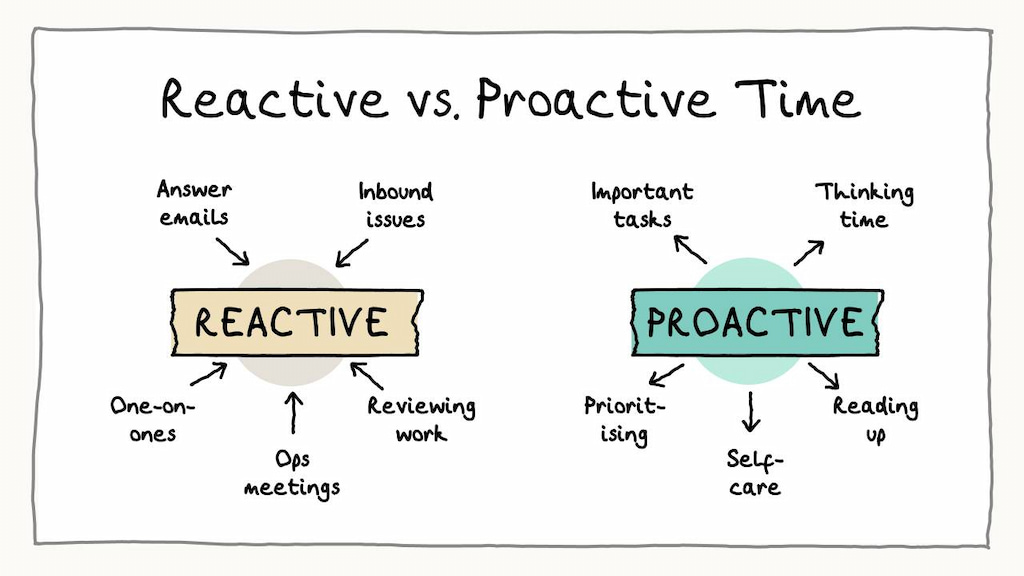
Key Traits of Proactive Individuals
Proactive individuals exhibit certain traits that set them apart from their reactive counterparts. These characteristics enable them to anticipate challenges, plan, and take initiative in both personal and professional settings. Here are some key traits of proactive individuals:
🚀 Forward-thinking
Proactive individuals are future-oriented. You can become more proactive by focusing on problems rather than solutions. They constantly think ahead, envisioning potential outcomes and preparing for them. This foresight allows them to make informed decisions and avoid pitfalls that might surprise others.
💡 Initiative
Taking initiative is a hallmark of proactive behavior. Proactive people do not wait for instructions or external prompts to act; they identify what needs to be done and take steps to accomplish it. This trait is particularly valuable in leadership and management roles.
📈 Goal-oriented
Proactive individuals set clear, achievable goals and work diligently toward them. They are focused and motivated, often breaking down larger objectives into manageable tasks. This structured approach helps them stay on track and measure their progress.
❗ Problem-solving skills
Proactive people are adept at identifying potential problems before they escalate. They analyze situations, consider various solutions, and implement strategies to mitigate risks. Their problem-solving skills help prevent crises and ensure smooth operations.
💪 Adaptability
Adaptability is crucial for proactivity. Proactive individuals are flexible and open to change. They adjust their plans and strategies as needed, based on new information or changing circumstances. This resilience enables them to navigate uncertainties effectively.
🧘♀️ Self-discipline
Self-discipline and self-management are key characteristics of proactive individuals. They are consistent in their efforts and maintain focus on their goals despite distractions or obstacles. Their ability to stay committed and manage their time efficiently contributes to their success.
😊 Positive attitude
A positive attitude underpins proactive behavior. Proactive people view challenges as opportunities for growth rather than threats. This optimistic outlook motivates them to take action and persist in the face of difficulties.
The Pros and Cons of Being Proactive
Being proactive offers numerous advantages in both personal and professional realms, but it also comes with its own set of challenges. Here’s a look at both sides of the coin:
✅ Benefits
- Improved problem-solving: Proactive individuals often foresee potential problems and address them before they become significant issues. This ability to anticipate and solve problems early can prevent crises and reduce stress.
- Enhanced productivity: By planning ahead and taking initiative, proactive people often achieve higher levels of productivity. They set clear goals, prioritize tasks, and manage their time effectively, which leads to more efficient and successful outcomes.
- Better decision-making: Proactive individuals gather information, consider various scenarios, and make informed decisions. This thorough approach minimizes the risk of poor choices and enhances the quality of their decisions.
- Increased resilience: Proactive people are typically more adaptable and resilient. They prepare for potential challenges and changes, allowing them to navigate uncertainties and recover from setbacks more effectively.
- Greater control and influence: By taking charge of situations and acting early, proactive individuals often have more control over outcomes. This sense of control can lead to increased confidence and a greater ability to influence events and people around them.

- Enhanced personal and professional relationships: Proactive individuals often take the initiative to build and maintain strong relationships. They communicate effectively, anticipate the needs of others, and are often seen as reliable and trustworthy, which strengthens their personal and professional connections.
- Career advancement: In the workplace, proactive behavior is highly valued. Proactive employees and direct reports are often seen as leaders and problem-solvers, which can lead to greater opportunities for career advancement and professional growth.
❌ Drawbacks
- Increased stress and pressure: Proactive individuals may experience higher levels of stress and pressure due to their tendency to take on more responsibilities and anticipate potential problems. This can lead to burnout if not prevented.

- Overplanning: Proactive people may sometimes overplan and become inflexible. This can lead to frustration if plans do not go as expected, and it may limit their ability to adapt to unexpected changes.
- Potential for overstepping: Proactive individuals may occasionally overstep boundaries or take actions that are not their responsibility. This can lead to conflicts with colleagues or superiors, particularly in a professional setting.
- Perceived as controlling: Proactive people may be perceived as overly controlling or micromanaging by others. This can strain relationships and lead to resistance or resentment from colleagues or team members.
- Risk of misjudgment: While anticipating problems is beneficial, there is a risk of misjudgment. Proactive individuals may focus on issues that never occur, diverting attention and resources from more pressing matters.
- Balancing proactivity with patience: Proactive individuals may struggle with balancing their proactive nature with patience. They may become frustrated with others who do not share the same sense of urgency or who prefer a more reactive approach.
Understanding both the benefits and drawbacks of being proactive can help individuals strike a balance, leveraging the advantages while mitigating potential downsides in their personal and professional lives.
Examples of Proactive Approaches
Being proactive involves taking initiative and anticipating future needs or challenges. Below are examples of proactive approaches in both personal and professional contexts:
🌟 Being proactive in life
- Health and wellness: Proactively managing one’s health by exercising regularly, maintaining a balanced diet, and scheduling regular health check-ups.
- Personal finances: Taking proactive steps to budget, save, and invest money wisely for future financial security.
- Education and skill development: Continuously seeking opportunities for learning and skill enhancement to stay relevant and competitive.
- Relationships: Taking the initiative to communicate openly, resolve conflicts, and nurture meaningful relationships with family, friends, and colleagues.
💼 Being proactive at work
- Project management: Anticipating potential challenges and developing contingency plans to ensure projects stay on track.
- Time management: Planning and prioritizing tasks to maximize productivity and meet deadlines effectively.
- Problem-solving: Identifying issues early and taking proactive steps to address them before they escalate.
- Customer service: Anticipating customer needs and resolving issues promptly to enhance satisfaction and loyalty.
- Career development: Taking charge of one’s career path by seeking opportunities for growth, networking, and skill development.
Developing a Proactive Mindset
Developing a proactive mindset is essential for cultivating a proactive approach to life and work. Key strategies on how to be more proactive at work and foster a proactive attitude include:
1️⃣ Self-awareness: Understanding personal strengths, weaknesses, and tendencies allows individuals to identify areas where proactive behaviors can be applied effectively.
2️⃣ Goal-setting: Setting clear and achievable goals provides direction and motivation for proactive actions. Goals should be SMART (Specific, Measurable, Achievable, Relevant, Time-bound) to ensure clarity and focus.
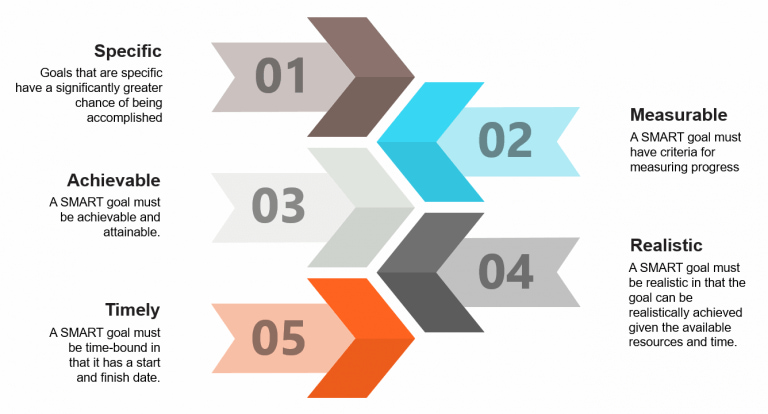
3️⃣ Initiative: Taking initiative involves stepping forward to address challenges or opportunities without waiting to be prompted. It requires courage, confidence, and a willingness to take calculated risks.
4️⃣ Adaptability: Being adaptable allows individuals to anticipate changes and proactively adjust their strategies or plans accordingly. This flexibility is crucial in dynamic environments.
5️⃣ Continuous learning: Embracing a mindset of continuous learning and improvement enables individuals to stay ahead of workforce management trends, acquire new skills, and innovate proactively.
6️⃣ Problem-solving skills: Developing strong problem-solving skills equips individuals to identify root causes of issues and devise proactive solutions to prevent recurrence (via root cause analysis, for example).
7️⃣ Time management: Effectively managing time ensures that proactive efforts are prioritized and executed efficiently. This involves planning, prioritizing tasks, and allocating time wisely.
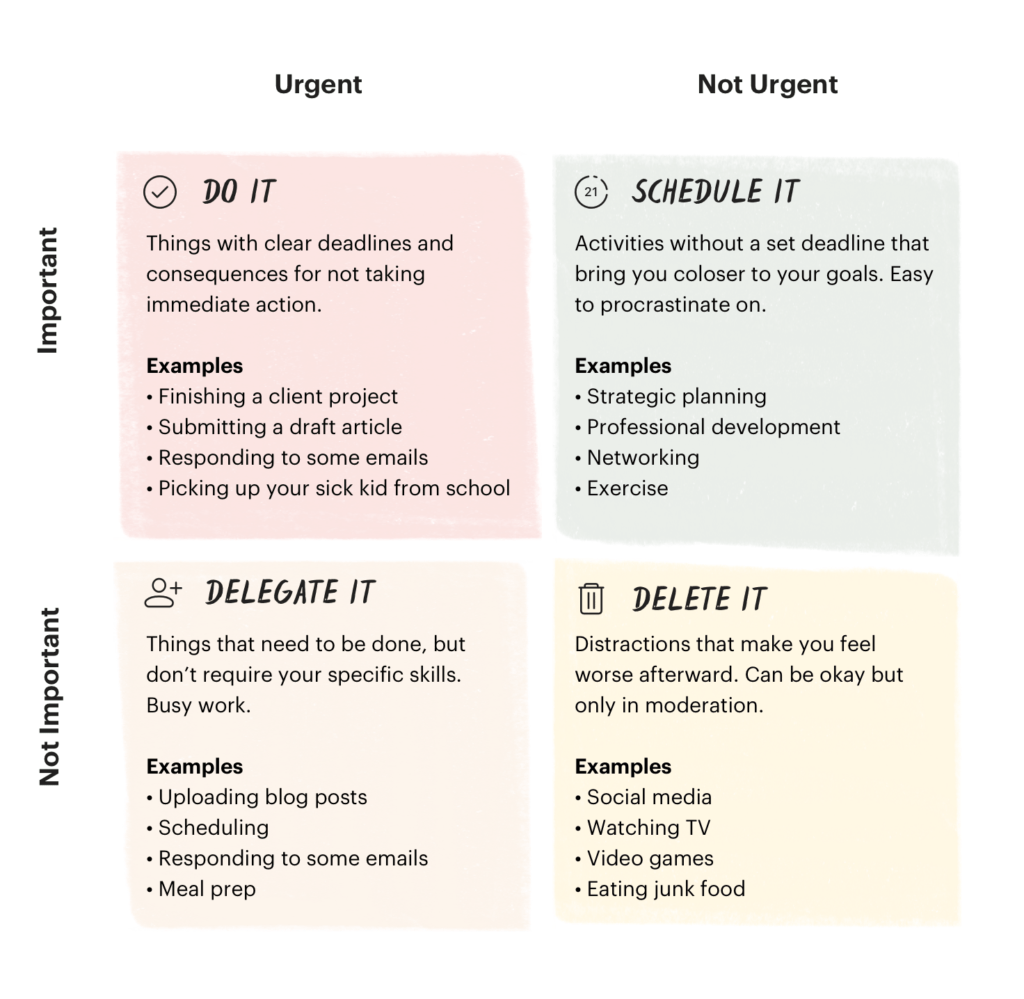
8️⃣ Resilience: Building resilience helps individuals bounce back from setbacks and challenges, maintaining a proactive mindset despite obstacles.
9️⃣ Feedback-seeking: Actively seeking feedback from peers, mentors, or supervisors allows individuals to gain insights into their performance and areas for improvement, fostering proactive growth.
🔟 Collaboration: Engaging in collaborative efforts with others encourages proactive teamwork and collective problem-solving, leveraging diverse perspectives and strengths.
Using Everhour for Proactivity
Everhour, a versatile time tracking and project management tool, plays a pivotal role in fostering a proactive approach in workplaces. Here’s how Everhour facilitates proactive behaviors:
- Real-time monitoring: Everhour enables real-time tracking of tasks and projects, allowing teams to stay updated on progress. This visibility helps in identifying potential delays or issues early on, enabling proactive adjustments to timelines or resource allocation.
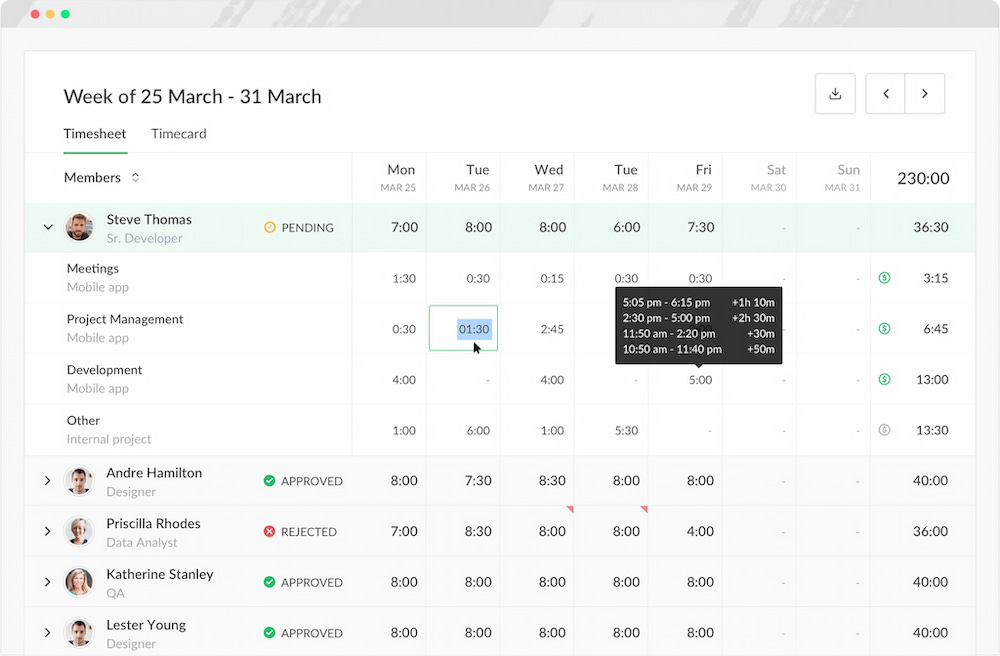
- Goal alignment: Integrating time tracking with project goals and milestones ensures that team efforts are aligned with strategic objectives. This alignment encourages proactive decision-making and prioritization based on project priorities.
- Data-driven insights: Everhour’s robust reporting features provide actionable insights into team productivity, project budgets, and time allocation. These analytics empower managers and team leaders to proactively optimize workflows and resource allocation based on data-driven decisions.
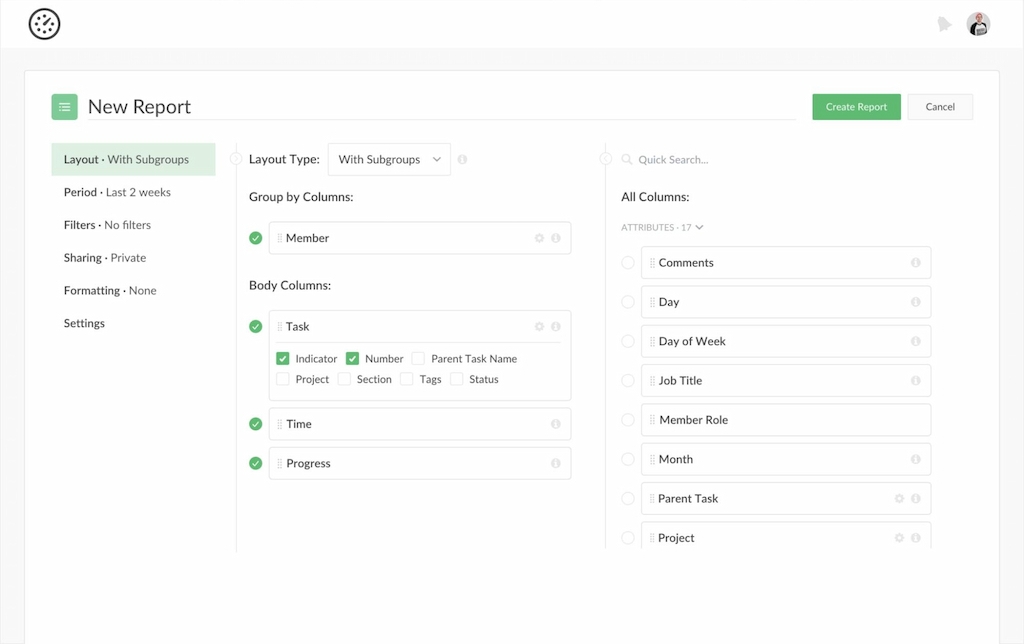
- Task prioritization: By categorizing tasks and allocating time effectively, Everhour helps teams prioritize activities that contribute most to project success. This proactive approach ensures that critical tasks are addressed promptly, minimizing bottlenecks and enhancing productivity.
- Integration capabilities: Seamless integration with popular project management tools like Asana, Notion, ClickUp, and Jira enhances workflow efficiency. This integration enables proactive task management across platforms, streamlining communication and collaboration.
- Proactive time management: Everhour’s time tracking features enable individuals to proactively manage their workload by setting estimates, tracking time spent, and optimizing schedules. This proactive time management fosters accountability and efficiency within teams.
By leveraging Everhour’s capabilities, teams can cultivate a proactive mindset, enhance productivity, and achieve project success through effective time management and informed decision-making.
What Does Proactive Mean: Conclusion
Understanding what it means to be proactive goes beyond mere action—it’s about cultivating a mindset that anticipates challenges, takes initiative, and drives meaningful outcomes. By embracing proactive behaviors, individuals and organizations can navigate uncertainties, seize opportunities, and achieve long-term success. Whether in personal life, work environments, or using tools like Everhour to streamline operations, proactivity empowers us to shape our future rather than react to it. Embrace proactivity as a guiding principle to enhance productivity, foster innovation, and lead with purpose in every aspect of life and business.
If you are managing a team of 5 or more and looking to boost efficiency, Everhour is the perfect tool to keep your team on track. With seamless time tracking, you can easily estimate task durations, set clear budgets, and generate detailed reports inside Asana, Trello, Jira, or any other pm tool.

